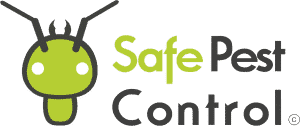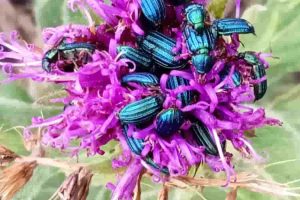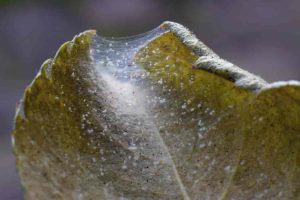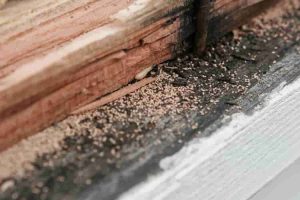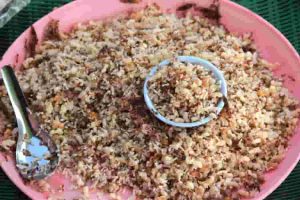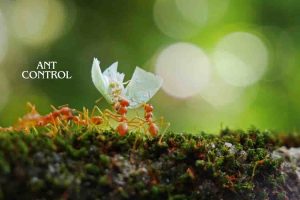Protecting our garden from pests while keeping beneficial insects safe is not just possible but essential for a healthy ecosystem. By using natural and homemade insecticides, we can target harmful pests without harming the helpful insects that keep our garden thriving. Making a soap spray by combining 2 tablespoons of castile soap with 1 gallon of water is a simple and effective method to keep pests at bay.
We should also attract beneficial insects like ladybugs and soldier beetles, which naturally control pest populations. Planting flowers such as zinnias, marigolds, and linden trees can help draw these helpful critters into our garden. They eat pests like aphids and grasshopper eggs, maintaining the balance in our garden ecosystem.
Additionally, employing organic repellents like neem oil and garlic spray can help protect plants without causing harm to beneficial insects. Learning to balance pest control by encouraging these natural predators and using gentle, homemade solutions keeps our garden healthy and vibrant.
Understanding Pest Dynamics in Your Garden
It’s crucial to know the difference between harmful pests and beneficial insects in our garden. By doing so, we can maintain the natural balance and ensure the health of our plants without using harmful chemicals.
Identifying Common Pests and Beneficial Species
First, we need to identify common garden pests and beneficial species. Garden pests like aphids, caterpillars, and whiteflies can damage plants by sucking sap or eating leaves. Recognizing these pests early can help us take action before they cause significant harm.
On the other hand, beneficial insects such as ladybugs, bees, and certain types of wasps play a vital role. For example, ladybugs eat aphids, while bees pollinate flowers. Knowing these key predators and good bugs is essential for a thriving garden.
Table: Common Pests vs. Beneficial Insects
| Pests | Beneficial Insects |
|---|---|
| Aphids | Ladybugs |
| Caterpillars | Bees |
| Whiteflies | Parasitic wasps |
By monitoring our garden regularly, we can spot these insects and determine if we need to intervene to protect our plants.
The Impact of Pesticides on Ecosystem Health
Using pesticides might seem like a quick fix, but it has long-term effects on our garden’s ecosystem. Pesticides don’t discriminate between bad bugs and good bugs. When we use them, we often kill beneficial insects like bees and ladybugs along with pests.
For instance, bees are essential for pollination. If we eliminate them, our plants might not bear fruit. Ladybugs, which control the aphid population naturally, might also be killed off. This can lead to an imbalance, as new pests flourish without their natural predators.
To avoid this, we can focus on natural pest control methods. Using beneficial nematodes or attracting natural predators can help manage pests without harming the ecosystem. Maintaining healthy soil is another strategy to ensure our plants are robust and less susceptible to pests.
Being mindful of pesticide use helps maintain a balanced, healthy garden, benefiting both our plants and the insects that help them thrive.
Organic Pest Control Strategies
Using organic pest control methods allows us to protect our garden plants while keeping beneficial insects safe. We can use methods such as companion planting, creating barriers, and making homemade pesticides.
Companion Planting and Natural Repellents
Companion planting is a method where we grow certain plants together to repel pests. For example, planting basil near tomatoes can ward off flies and mosquitoes. Chives and garlic also deter aphids and spider mites.
We can plant catnip, spearmint, and thyme to repel a variety of pests. These herbs not only protect plants but also attract beneficial insects like ladybugs. It’s important to use plants that are natural repellents, such as garlic and cayenne pepper, which can keep pests at bay without harming the garden ecosystem.
Creating Barriers and Physical Deterrents
Creating physical barriers in our garden can be an effective way to prevent pests. We can use crushed eggshells around our plants to deter slugs and snails. Row covers or mesh can protect crops from insects and birds.
We should also use diatomaceous earth, which is a natural substance that can be sprinkled around plants to keep crawling insects away. Additionally, placing sticky traps can catch flying pests without using harmful chemicals. By using these methods, we can safeguard our plants while maintaining an organic garden environment.
Homemade Pesticides and Natural Solutions
Homemade pesticides can be made using natural ingredients found in our kitchens. A mixture of dish soap and water can be sprayed on plants to kill aphids and spider mites. Garlic spray, made from crushed garlic cloves mixed with water, can repel a variety of pests.
Neem oil is another effective natural pesticide. It can be sprayed on plants to control insects like whiteflies and mealybugs. Essential oils such as peppermint or tea tree oil can also deter pests when mixed with water and sprayed on plant leaves. Using these natural solutions helps us maintain a healthy, pest-free garden without harming beneficial insects.
Promoting a Healthy Garden Ecosystem
Creating a healthy garden ecosystem involves more than just planting the right flowers and vegetables. It requires attracting beneficial insects and ensuring your plants have the nutrients they need to thrive.
Attracting Pollinators and Pest Predators
Pollinators and pest predators play a vital role in maintaining garden health. By encouraging these good garden bugs, we can keep harmful pests at bay naturally.
Pollinators, such as bees and butterflies, are attracted to brightly-colored flowers like marigolds. These plants provide nectar and pollen, essential food sources for these insects. Including a variety of flowers ensures continuous blooms and a steady food supply.
Pest predators, like ladybugs and lacewings, help control harmful pests like aphids and caterpillars. Birds also prey on insects, providing another layer of natural pest control. To draw these predators, we can plant diverse vegetation and install bird feeders or water sources. Shelter in the form of small woodpiles or rock heaps also helps.
By planting aromatic herbs and flowers and creating habitats, we invite these beneficial creatures into our garden, promoting a balanced ecosystem.
Cultivating Soil Health and Plant Vigor
Healthy soil is the foundation of a thriving garden. To cultivate it, we should focus on enriching the soil with organic matter and avoiding chemical fertilizers.
Organic materials, like compost and manure, improve soil structure and add vital nutrients. We can also use organic fertilizers, such as fish emulsion, which release nutrients slowly and minimize environmental harm. Unlike synthetic fertilizers, these options support beneficial soil organisms and maintain soil health.
In addition to soil health, ensuring our plants have the right nutrients and care is crucial. Regular watering, mulching to retain moisture, and using physical barriers like row covers protect plants from pests and harsh weather.
Maintaining diverse plant species and using natural pest control methods help keep our garden resilient against diseases and pests. This approach ultimately supports a healthy, sustainable garden ecosystem.
On-Time Service

5 STAR SERVICE BASED ON 100+ GOOGLE REVIEWS
PET & FAMILY FRIENDLY TREATMENT

ALL YEAR-ROUND PROTECTION
Take Back Control Now
8
REASON TO CHOOSE SAFE PEST CONTROL
- Guarantee protection all year-round
- 30 Years Collective Experience
- An impeccable reputation across Sydney's Suburbs
- Certified treatments & written Warranty On all work carried out
- Family Owned & Operated
- Rated #1 Pest Control In Sydney NSW
- No Mess, No Smell
- Family & Pet Friendly Treatments
REQUEST A QUOTE
